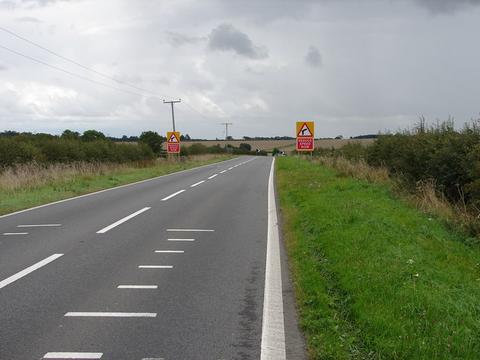IOSH Asks Government to Report Work-Related Road Traffic Accidents
During Road Safety Week 2012, in order to help curtail the number of work-related traffic accidents, the Institution of Occupational Safety and Health (IOSH) asked the government to include work-related road traffic accidents in the National Accident Reporting System, RIDDOR (Reporting of Injuries, Diseases and Dangerous Occurrences Regulations 1995).
Statistics from the Department of Transport show that, until June 2012, approximately 24,870 people are said to have died or injured in work-related road traffic accidents (RTAs). According to the Government, in 2010 approximately 24% of the road injuries and 30% of the deaths in road accidents were work related.
The Health and Safety body believes that by making employers report the number of cases of RTAs to the government, the occurrence of such accidents that take place while driving for work will diminish.
The head of IOSH's policy and public affairs committee, Richard Jones, states that under health and safety legislation, employers in all sectors are required to ensure their employees' safety, and that this should include taking precautionary measures against occupational road risks. He believes that having a good preventative plan in place to limit occupational road risks is not only a good business decision but it will have a positive effect on staff relations and wellbeing.
 Making sure that workers are safe while driving for work is just as important as making sure that work machinery remains safe while they are on work premises. In their latest response to RIDDOR consultation, which ended last month, Jones explains that they have requested that the government make sure that serious work-related road injuries and death are accounted for in RIDDOR. This will give employers and employees a chance to take more proactive measures to assure road safety.
Making sure that workers are safe while driving for work is just as important as making sure that work machinery remains safe while they are on work premises. In their latest response to RIDDOR consultation, which ended last month, Jones explains that they have requested that the government make sure that serious work-related road injuries and death are accounted for in RIDDOR. This will give employers and employees a chance to take more proactive measures to assure road safety.
IOSH believes that incorporating work-related road traffic accidents into RIDDOR will reduce their number, as well as the associated injuries and deaths.
The IOSH is the world's largest chartered body of health and safety professionals, and it supports laws and regulations that can decrease the number of these work-related RTAs. Their goal is to enforce plans and precautionary measures that will reduce the occurrence of occupational road traffic injuries and deaths, thus supporting the safety of all employees who drive for work.
For get more information about minimising RTAs, please visit the IOSH website. It also contains success stories that have been used in IOSH Li£e Savings Campaign.
Other initiatives that 2012's Road Safety Week included was a Go 20 campaign whose aim was to create safer London streets for the public. They want everyone to be able to engage in walking, cycling, running and other activities without the fear of being hit by a vehicle. Through advertisements, they are requesting that drivers slow down to 20mph around residential areas, to empower people and get them involved in making the London streets more safe.
For more details about the GO 20 campaign, please visit www.go20.org, and for more information about the road safety week, please go to www.roadsafetyweek.org.uk/index.php?/about-brake.html.
(Image Credit: Ian Paterson)
About Peter Harrison
Pete has been involved in marketing for longer than her can remember
